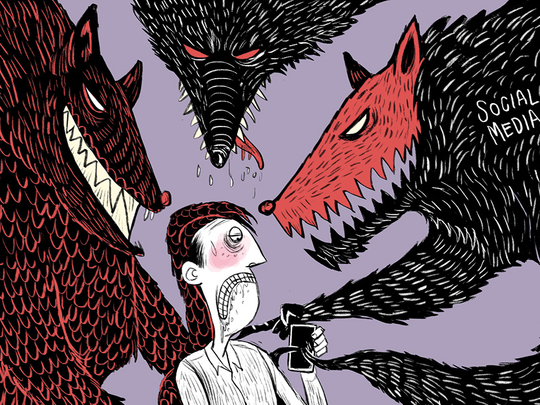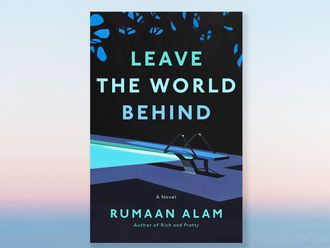
Only a couple of years ago it would have been unimaginable that when the president of the United States wanted to communicate his views, he would reach for his mobile phone and tap out his angry exclamations on Twitter. Social media now allows us to keep in touch minute by minute with our friends, work colleagues and even with the unvarnished views of the most powerful man in the world. As foreign secretary, I too developed many uses for Twitter, although I did not torment my “followers” with my views in the middle of the night.
It soon became apparent that if I wanted to issue a statement faster than any press office could manage, or find out what people were saying in Tahrir Square faster than any diplomat could report it, I needed Twitter. The attractions of such rapid, global and personal communication are irresistible to most of us. Today, Facebook, Google and Twitter connect billions of people and allow each of us to build our own web of contacts, opinions, sources and interests.
A vast proportion of human interaction has moved on to their servers, making these companies among the most valuable ever to have existed. Such wealth and importance have led the leaders of these organisations to believe they are not only providing a service but are in some ways leading humanity.
Mark Zuckerberg, the founder of Facebook, talks of “giving people the power to build a global community” — one in which social structures, community groups and democratic participation are facilitated by his company. Yet, it is now becoming apparent that the mass use of social media is creating vulnerabilities and weaknesses in society and that the idealistic leaders of the companies responsible may have been too slow or complacent to respond to them. One of these has been highlighted in this week’s devastating report by a committee of British MPs, attacking social media companies for “completely irresponsible and indefensible” failures to prevent extreme and criminal activities from taking place on their networks.
Hate speech and terrorist propaganda, they say, are “shockingly easy” to find. The companies say they remove and block illegal material when it is reported to them, but this relies on their users reporting something they think is wrong and action has not always been taken with appropriate speed. Why, in any case, should it be up to others to police their networks? Anyone who puts up a notice or publishes a leaflet or newspaper is responsible for its content, even if written by others. It is time the same rule of thumb applied to the social media giants. Public opinion is about to catch up with this growing problem, and with that will come changes in the law in this and other countries.
But this is only one of the areas where the consequences of transposing so much of human society into a digital form will have to be addressed. Evidence has been mounting that the sharp rise in mental health problems among teenagers in recent years is connected to extensive use of social media. A major study by the University of Pittsburgh has found that young people who are heavy social media users are nearly three times more likely to be depressed than occasional users. Similarly alarming results have been found in the United Kingdom. The lead author of the Pittsburgh study speculated that reasons for this could include the effect of seeing so many other people portraying their life as one full of friends, wealth or excitement.
There is always someone more beautiful, cleverer; with better holidays or more fashionable clothes. Knowing those people in the real world would reveal their own many problems and insecurities. On top of this comes the effect of spending endless hours tapping out messages instead of getting into a conversation, and the disruption to sleep caused by addiction to social media activity and the constant pressure to respond, to add new friends, to show you’re part of a group and to display images of the great time you’ve had today.
Solitude has become harder to enjoy and a quiet disposition harder to maintain. Whether some older people are affected in their mental health is not yet clear, but it is already apparent that the increasing habit of receiving news and comment from social media can polarise opinion and reinforce prejudices and preconceptions. Recent research shows nearly half of adults in the United States getting some or all of their news through Facebook. This produces two problems. One is that the networks automatically give people more of the content they already “like”, thus shielding them from contrary opinions.
The second is that “fake news” is more easily disseminated and then believed via social media than through conventional media. A study of voters in the key state of Michigan in last year’s election found that half of the news they shared with each other was fake. In the current French presidential elections, an Oxford University study has found that misinformation has at times accounted for a quarter of the links to political subjects shared on Twitter. Such vulnerability to invented stories leaves voters in democratic societies open to foreign influence: Russia’s involvement in the US election is now widely acknowledged and there have been signs of such activity in France as well.
Perhaps worse still, the ability of the state to employ large numbers of people to propagate a particular view and deploy it through social media is strengthening the hand of authoritarian regimes in their own countries. For many, the information age is not bringing the exposure of tyrants and the spread of freedom, but instead a more powerful oppressor. Facebook, Google and Twitter are rightly praised for their ingenuity and vision, but they are going to need to change their responsiveness to these and other escalating concerns if they are not to become far more tightly regulated. All their actions are going to need more transparency, more resistance to manipulation and more consciousness of the problems they can cause. Until they do so, the wise citizen can mount their own defence by entering the social media world judiciously, some of the time, and quite often having the good sense to switch off.
— The Telegraph Group Limited, London, 2017
William Hague is a former British foreign secretary and a former leader of the Conservative Party.








